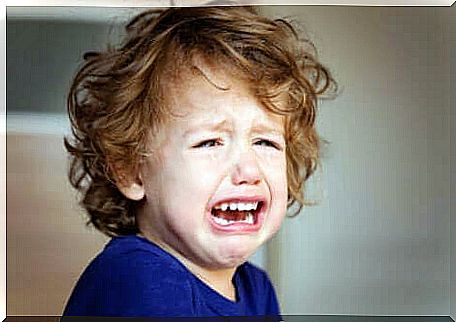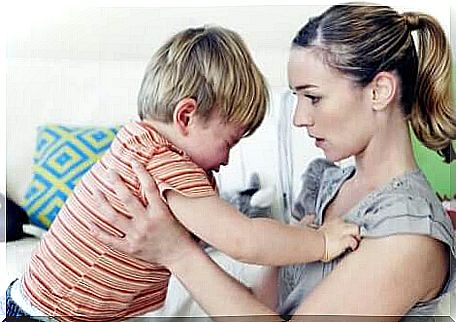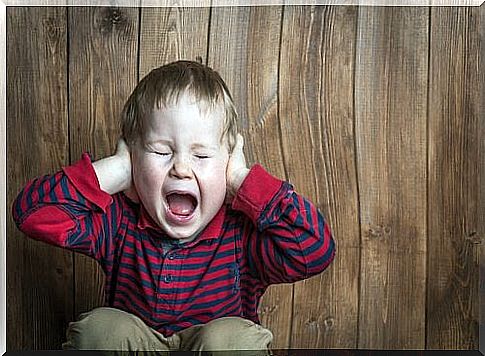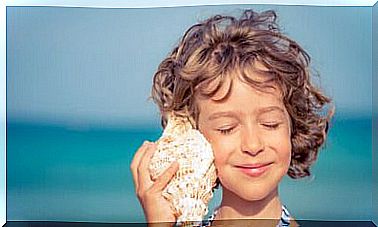I Can’t Stand My Kid Getting Angry

“I can’t stand my child getting angry” is a statement you often hear during psychological counseling for children. However, it is fundamental that parents can act as external regulators of emotions and maintain calm until their children are able to reach this point independently.
Discover here some keys that will facilitate the process of learning anger regulation. We’ll also help you understand how your child’s brain works during these early stages and the role parents can play in helping children reach emotional maturity.

Children and anger
One of the scenes feared by parents is that of tantrums: screaming and kicking in the middle of the supermarket or great anger in the middle of the street. Scenes that often awaken, in parents, a feeling of guilt, shame, anger and, above all, helplessness.
Why do these crises occur? Anger is an expression of frustration and discomfort in children who are still in a preverbal phase of development and emotional maturity that does not allow them to communicate in any other way.
This situation generally improves after the age of four. We are actually talking about a normal stage in the development of a child. In itself, there is nothing to be ashamed of or worrying about.
This step serves as a starting point to begin autonomous anger regulation. Thus, one of the keys guiding this learning will be how the main figures react to this anger and manage their frustration. It’s really about analyzing what we do when our child gets angry, and how we experience that situation.
I can’t stand my child getting angry: why?
Anger outbursts in children can be very unpleasant: inordinate intensity, inappropriate places, high frequency … It is possible that in full anger, you feel a growing sense of helplessness which also threatens your capacity for emotional management.
This is partly due to the contagious effect of human emotions as a consequence of mirror neurons. Especially if it is someone close to you, like their own children.
In addition, the latter live in their small world of children, with their own worries and dreams. This is why we sometimes have a hard time understanding why a child can put himself in this state when he does not reach the immediate satisfaction. From our adult perspective, if we compare their problems to ours, theirs can seem ridiculous.
It is also important to ask ourselves what relationship we have with the emotion of anger. In other words, you have to ask yourself how we deal with this emotion, and even how our parents reacted when we were kids and had anger.
What can I do when my child gets angry?
How to regulate emotions is learned especially during childhood and adolescence. The prefrontal area of the brain, one of the main factors involved in this emotional regulation, does not finish developing until the end of these stages.
Until children fully develop their brains and learn to manage their anger, parents play an external supporting role for these emotions. The main figures of children therefore act as anger control references that they are unable to manage.
We can therefore imagine that this external control point must reflect a good regulation so that the child himself succeeds in doing it on his own. Discover some keys below.
The keys to remedying anger
- Be its own mirror. The first key is surely the most important and the most effective in any learning. Children, just like us, reflect their primary attachment figures, for better or for worse. So the way you deal with your anger will have a direct influence on how the child does it.
- If you raise your voice when your child gets angry, the child will probably act in a similar way. If you want to turn this principle in your favor, speak out loud about how you deal with these emotions in front of him.
- His reasons are important. A lot of times we react with anger when the child has a fit over a broken toy or because he can’t keep watching his favorite cartoon. We fail to understand why he puts himself in this state for such a trivial thing. It is important here to reconnect with the child you once were.
- Indeed, at the age of four or five, this moment, which no longer seems unimportant to you, would have counted for you. Try to think like a child: you have been, and he has not yet been an adult.
- Make him understand the good and bad ways to express his anger. Some parents pick up on their children when they express anger, such as crossing their arms or going into another room. Shouting and hitting are not adequate expressions of anger because they hurt other people.
- Crying or not wanting to speak are much more appropriate expressions. This key is to teach them the right ways to express anger and give them space. Remember that all emotions are valid, but not all of their expressions.

When my child gets angry, I will support him
During childhood, we learn to regulate emotions. There are certain critical periods when children become more irritable, in part because of a certain brain immaturity. Since they are not able to deal with their emotions, it is important for parents to act as external regulators, keeping their calm.
The feeling of helplessness in the face of a temper tantrum is a common feeling for many parents affected by the stress of these events. The fact that we have a hard time understanding why children get angry is also why parents feel particularly upset during these times.
Parents educate by being role models of anger or helplessness management and by validating the little one’s emotions. It is also important to allow the child to show his anger. He must indeed be able to acquire control over his expression and must not systematically keep the energy and the message of the emotion to himself.










